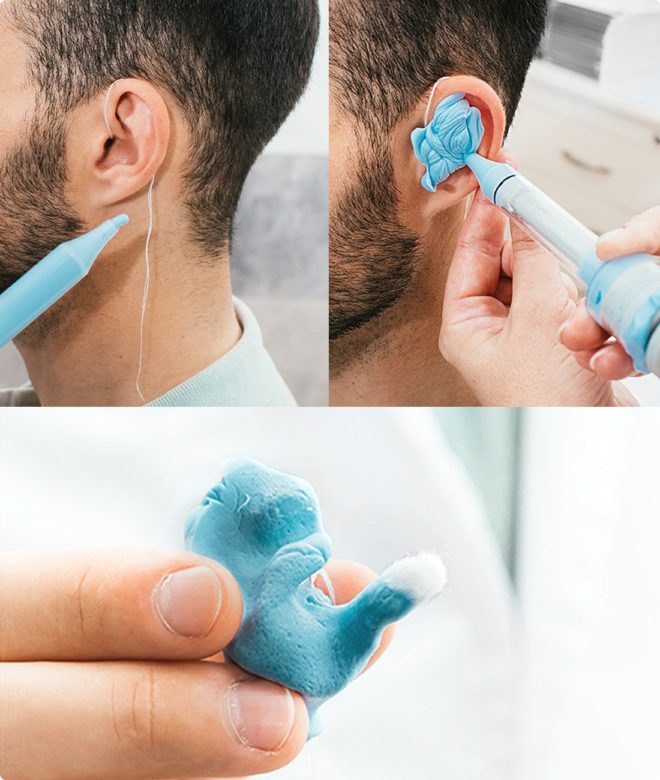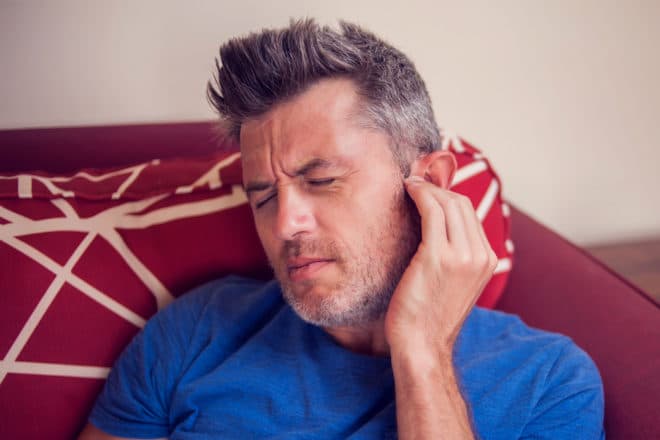We have moved!
- 307 N Market Street, Paris TN, 38242
Lowe Audiology by AudioNova
Fort Wayne , IN 46815
Tuesday: 08:00 AM to 04:30 PM
Wednesday: 08:00 AM to 04:30 PM
Thursday: 08:00 AM to 04:30 PM
Friday: 08:00 AM to 04:30 PM
Saturday: Closed
Sunday: Closed
- In Person
- Curbside
- Virtual

What we offer
Comprehensive & holistic care
Unlike other clinics that are limited to offering hearing aids from one brand, we offer solutions and technology from a wide range of top-tier brands, enabling our providers to find the perfect device and fit for each patient.
Treating hearing loss starts here
When you visit in person for a risk-free evaluation, you’ll receive an in-ear examination as well as a comprehensive hearing test, including Otoscopy, Tympanometry, Tone Test, Bone Conduction and Speech Discrimination. Can’t make it to the office? Meet with us curbside or virtually!
Hearing aids & treatment
Our clinicians are extremely knowledgeable on the latest technology and will work with you to find the best solution to fit your lifestyle. We offer a wide range of hearing aid brands, with styles, and technology to fit your needs and budget.
Tinnitus testing & treatment
While there is no cure for tinnitus, it can improve greatly with treatment. A full examination including diagnostic testing often pinpoints the underlying cause of the tinnitus, and various treatments are available to help with the symptoms.
Hearing protection
We specialize in hearing protection for recreation and high-noise jobs, with different levels of attenuation and protection available. From custom in-ear monitors to filtered ear plugs, we have multiple options for protection.
Insurance counseling
Navigating your insurance benefits is no easy task. That’s why we have insurance specialists on-staff who are happy to verify your benefits and take the time to explain them. Relax in the knowledge that we work with most major insurance brands — and let us handle the hard stuff.
Additional clinic details

Custom Hearing Protection
At Lowe Audiology, we specialize in providing custom hearing protection for hunters, musicians, and anyone whose hobby, lifestyle, or work exposes them to loud noises. We also specialize in state of the art hearing technology for those that suffer from noise-induced hearing loss.

Tinnitus Management
At Lowe Audiology, we specialize in the diagnosis and management of tinnitus (often called “ringing in the ears”). A full examination often pinpoints the underlying cause of tinnitus and helps our hearing care professionals determine the best plan of treatment, which may include special hearing aids, sound therapy, or changes in diet.

Offering Telehealth and Virtual Services
At Lowe Audiology, we offer telehealth services to those “snowbirds” who travel outside of our area or simply can't make it in to our clinic. Telehealth is also available to those who are not comfortable or unable to leave their home at this time.
Patient Reviews
-
11/26/2024 -
10/20/2024very through and new what she was doing -
10/01/2024 -
09/03/2024Great customer service -
08/19/2024Excellent service -
06/27/2024Very good customer service -
06/08/2024Great service! -
05/06/2024All my questions and concerns were answered thoroughly. Did not feel rushed. -
12/01/2023I was treated like I was important. A stress free experience.
Meet the team
Frequently Asked Questions
What are OTC hearing aids?
Over-the-counter (OTC) hearing aids are hearing devices that may be purchased without a prescription or professional evaluation, to support better hearing in adults with perceived mild-to-moderate hearing loss. OTC hearing aids are designed to be cost-effective and convenient to purchase; the FDA has set guidelines for eligible devices, noting that they must be safe for consumers.
OTC hearing aids do come with major limitations. They are not fitted for each individual’s ear, meaning they are more likely to be uncomfortable or not stay in your ear. OTC hearing aids do not come with the same advanced features and technology as prescription devices, nor can they be adjusted as finely as a prescription hearing aids. Buying OTC hearing aids also bypasses the hearing assessment that accurately measures hearing loss—which is often more severe or complex than people realize—and can pinpoint bigger underlying issues.
Which hearing aids can I choose from?
We carry all four major types of hearing aids—behind-the-ear (BTE), in-the-canal (ITC), in-the-ear (ITE), and receiver-in-canal (RIC)—from all major device brands, including Phonak, Starkey, Signia, Siemens, Oticon, ReSound, Widex, and more.
How can I try hearing aids risk-free?
When you buy hearing aids from one of our clinic locations, you have a 30 day evaluation period with your devices. If the hearing devices are not the right solution for you, you are able to exchange for another hearing solution or return the devices for a full refund.
We know that trying on hearing aids briefly in-store is different from letting your ears get used to the device and giving them a test spin in your everyday life. Only after wearing them for a few days as you go about your normal day-to-day will you be able to really judge whether they work for you. If, within 30 days, you decide hearing aids are not the right solution for you, you are able to return the devices and receive a refund.
Will hearing aids help tinnitus?
Tinnitus is often a symptom of hearing loss. For the majority of people, tinnitus is the result of the brain generating sounds that is missing. For most people treating the hearing loss with amplification can result in a reduction of tinnitus perception. As a result, most hearing aid wearers report improvement in their tinnitus symptoms.
Some hearing aids have specific features to target the sounds of tinnitus. For example, ReSound hearing aids often have a Tinnitus Sound Generator (TSG) that helps mask tinnitus noise to help provide some relief.
Can hearing aids cause vertigo?
Hearing aids do not cause vertigo. The only reason you may see hearing loss and vertigo occur together is because the damage to the ear that can cause vertigo may also cause hearing loss.
The ear contains a network of membranes and tubes that participate in not just the auditory system (responsible for hearing), but also the vestibular system (responsible for balance). The cochlea is part of the inner ear, made up of spiral tubes covered in sensitive hairs that produce nerve impulses in response to sound or air movement. Damage to the cochlea is one common example of why an individual may experience both hearing loss and vertigo. Supporting their hearing would help their symptoms but would not trigger vertigo.
When should I get a hearing aid?
There are five different levels of hearing loss: mild, moderate, moderately-severe, severe, and profound. Mild hearing loss involves being unable to hear soft sounds like someone whispering or leaves rustling. Moderate hearing loss is usually where audiologists start to recommend hearing aids for everyone, since this is where speech becomes difficult to hear (particularly in noisy environments)—and that can have mental health effects or be outright dangerous.
If you suspect that you have hearing loss, speak to a hearing care professional. You may benefit from a hearing aid, while everyone may benefit from hearing protection.
How long does it take to adjust to hearing aids?
Most people get used to their hearing aids within two to three weeks of starting to consistently wear them. Whether it’s your first hearing aid and you need to get used to having something in your ear, or if it’s a new hearing aid and the change of device is throwing you off, odds are it will likely take some time before you are accustomed to the device. It can take up to four months for you to fully acclimate to your hearing aids and to really get the most out of them. You will notice small changes right from the start, but it’s important to be patient. Acclimating to hearing aids requires consistent use of the devices.
This timing is why we offer our 30-day risk-free trial. If after giving yourself a chance to really get accustomed to your hearing aids, you are not satisfied, you can return them for a full refund.
What hearing aids are best for mild hearing loss?
It can be easy to miss mild hearing loss, which usually affects sounds like whispers or ambient noise, but that doesn’t mean you wouldn’t benefit from a hearing aid. Most hearing aids can help with mild hearing loss; the question is what fit is most comfortable for you, and what sorts of features are you looking for. Because you do not need extensive amplification, your hearing aid options can include even the most discreet, completely in-the-canal (ITC) options.
What hearing aids are best for moderate hearing loss?
Most types of hearing aids can work for people with moderate hearing loss. Work with your hearing care professional to pick the style that fits your ear most comfortably, and that has the technology you need for your particular range of hearing loss and other lifestyle considerations (e.g., if you tend to frequent noisy environments). If you have tinnitus, you may choose a hearing aid that aims to filter out tinnitus sounds (ringing, whooshing, etc.).
What hearing aids are best for severe/profound hearing loss?
Your hearing care professional will likely recommend a behind-the-ear (BTE) or an in-the-ear (ITE) hearing aid to address your severe or profound hearing loss.
– BTE hearing aids provide maximum amplification with minimal feedback.
– ITE hearing aids work like BTE devices, except they are custom-made to fit your ear—providing the best possible fit—and work well for people with arthritis or other dexterity issues.
What are the best hearing aids on the market?
Our clinics get asked this question all the time. The reality is that there is no single “best” hearing aid. A better question to ask is, “What is the best hearing aid to address my hearing loss?” The answer to this question will depend on many factors, including what type and extent of hearing loss you have, the shape of your ear, your lifestyle, your budget, and more.
Your hearing care professional will assess your hearing loss, help you navigate the available options, and work with you to determine the best solution for your hearing care needs.
What is the latest technology in hearing aids?
There is always new hearing aid technology coming out, but some of the bigger trends in emergent features include:
– Multidirectional microphones that automatically detect and differentiate between speech and environmental sounds, to curate a better experience for the hearing aid
– Wind reduction by sensors that detect the wind noise and remove it from the amplified sound, so that you can hear better outdoors
– Bluetooth connectivity that directly syncs your hearing aid with smart devices like televisions or mobile phones
– Rechargeable batteries that save you the hassle of having to change your device’s disposable battery every week or so
What types of batteries do hearing aids use?
Rechargeable lithium-ion batteries are gaining ground with hearing aid manufacturers, and generally come with the device.
There are still some hearing aids that use disposable batteries, usually using zinc-air technology. These batteries come in four different sizes, each of which has a distinct lifespan: size 10 lasts 3-7 days; size 312 lasts 3-10 days; size 13 lasts 6-14 days; and size 675 lasts 9-20 days.
Does my insurance cover the price of hearing aids?
It is possible that your health insurance may cover some or all the costs associated with hearing aids and exams. Because insurance coverage varies widely, your best option is to work with one of our insurance specialists who can help you navigate the terms of your plan—and field any required conversations with your insurance provider.
What is a hearing test?
An audiometric evaluation is the central part of a hearing test, where an individual’s ability to hear different sounds at various pitches and frequencies is assessed. This can help classify and quantify any hearing loss.
Our hearing care professionals include more analysis in their hearing test. Aside from tone testing in each ear, they also assess your ability to discriminate speech. Our experts use tympanometry to measure how well your eardrum moves, and bone conduction tests to evaluate your inner ear. Of course, they also visually examine your ear to look for any obstructions or other abnormalities.
Together, this set of tests gives a holistic picture of your hearing health, and helps pinpoint what sorts of solutions would work best for you. A hearing care professional will check for signs of major underlying health issues contributing to your hearing loss, and refer you for further evaluation if needed.